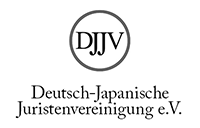The Price of a Tweet
Defamation and Social Media in Japan
Abstract
Der Aufstieg der sozialen Medien stellt überkommene Prinzipien zum Schutz der persönlichen Ehre vor einzigartige Herausforderungen. Traditionell schützen die japanischen Regeln zu Ehrverletzungen zwei verschiedene rechtliche Interessen: das soziale Ansehen einer Person (shakai meiyo) und das persönliche Ehrgefühl (meiyo kanjō). Für erstere haben Gerichte eine Reihe von Voraussetzungen und Gegenrechte entwickelt, die hauptsächlich für analoge Medien wie Bücher, Zeitungen, Radio oder Fernsehen gelten. Im Gegensatz zu den Grundsätzen des Common Law und einigen kontinentaleuropäischen Rechtsordnungen ist nach der Rechtsprechung der japanischen Gerichte ein Schadensersatzanspruch wegen Ehrverletzung nicht von vornherein ausgeschlossen, wenn die behauptete Tatsache wahr ist. Entscheidend ist für die Gerichte vielmehr, ob die Äußerung des Beklagten das soziale Ansehen des Klägers beeinträchtigt.
Darüber hinaus basieren die Maßstäbe, die verwendet werden, um festzustellen, ob eine Äußerung ehrverletzend ist, je nach Medium auf der Vorstellung eines gewöhnlichen Zuschauers, Lesers oder Zuhörers. Japanische Gerichte haben diesen Standard für soziale Medien angepasst und den Standard des gewöhnlichen Benutzers (ippan etsuran-sha) entwickelt. Die aktuelle Rechtsprechung scheint jedoch nicht zu berücksichtigen, dass der Begriff des gewöhnlichen Nutzers bei Social-Media-Diensten nicht einfach zu definieren ist.
Üblicherweise trifft die deliktische Haftung die Person oder Institution, die ehrverletzende Aussagen gemacht hat. Japanische Gerichte haben in den letzten Jahren jedoch auch Personen für haftbar erklärt, die Informationen nur über Twitter geteilt hatten. Diese Herangehensweise birgt Risiken, da die Gerichte den Kreis möglicher Beklagten erst noch definieren müssen. Im Falle von Persönlichkeiten des öffentlichen Lebens kann das Festhalten an traditionellen Standards des Ehrschutzes und die Annahme einer Haftung von Nutzern, die Informationen lediglich geteilt haben, die öffentliche Kontrolle von Amtsträgern einschränken.
Beispielsweise bestätigte das Obergericht Ōsaka im Jahre 2020 ein Urteil der Vorinstanz, in dem ein unabhängiger Journalist für das Teilen eines Beitrags über Twitter haftbar gemacht wurde. In dem Artikel wurde der Kläger, ein ehemaliger Politiker, beschuldigt, einen Beamten in den Selbstmord getrieben zu haben. Die Gerichte bejahten eine Haftung, obwohl schon zuvor Medienberichte diese Anschuldigung öffentlich gemacht hatten.






